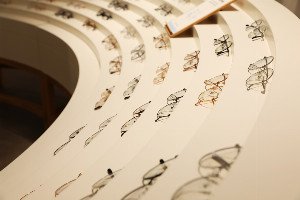Herlina Fitriana, Baiq Arwindy Prayona, Iqbal Bafadal
Resilience and Moral Character Among University Students in the Era of Technological Disruption: A Phenomenological Study of BKI Students at UIN Mataram
Introduction
Resilience and moral character among university students in the era of technological disruption: a phenomenological study of bki students at uin mataram. Explore university students' resilience and moral character amidst technological disruption. A phenomenological study reveals struggles with stress, moral degradation, and factors influencing behavior.
Abstract
Based on preliminary research findings, many students feel easily defeated by their circumstances and tend to complain. Additionally, many students experience a degradation in morality when communicating with lecturers. The method used in this study is qualitative with a phenomenological approach, interviewing 20 students from the BKI program. The results show that only 5 out of 20 students are resilient, while the other 15 tend to give up easily and experience stress, with 2 of them even contemplating suicide. Based on the interviews, it was found that each student is capable of both good and bad behaviors, such as stealing, lying, showing a lack of empathy, and being impolite toward elders. Their moral character varies, influenced by personal experiences, trauma, and their environmental conditions.
Review
The study addresses a highly relevant and timely issue concerning the resilience and moral character of university students amidst an era characterized by technological disruption, a phenomenon that significantly impacts youth well-being globally. Focusing on BKI students at UIN Mataram, the research aims to explore these critical attributes using a qualitative, phenomenological approach. The preliminary findings, indicating widespread struggles with resilience and concerning observations regarding moral character, underscore the importance of this investigation and highlight a pressing need for interventions within the student population. While the study's objective is commendable, several aspects of its methodology and the presentation of findings warrant further clarification and critical attention. The abstract states a phenomenological approach, yet the results primarily present quantitative observations (e.g., "only 5 out of 20 students are resilient") and generalized behaviors rather than the rich, in-depth exploration of lived experiences and meanings that are characteristic of true phenomenology. For instance, the specific mechanisms through which "personal experiences, trauma, and environmental conditions" influence moral character, or the students' subjective understanding of resilience, are not detailed. Furthermore, the significant titular element of "technological disruption" is conspicuously absent from the findings, leaving a crucial gap in understanding how this era specifically shapes students' resilience and moral character, beyond a general observation of moral degradation in communication with lecturers. The finding regarding suicide contemplation is alarming and suggests an urgent need for institutional support, but its phenomenological exploration is not evident. Despite these points, the study offers valuable initial insights into the mental and moral state of university students, particularly within the BKI program at UIN Mataram. Its strength lies in identifying critical challenges faced by students, including concerning levels of stress and moral ambiguity. To enhance the study's scholarly contribution, the authors are encouraged to elaborate on how the phenomenological approach was specifically applied to uncover the *essences* and *structures of meaning* in students' experiences of resilience and moral character. Future iterations should explicitly integrate the "technological disruption" variable into the analysis of findings, perhaps by exploring students' lived experiences of its impact. Additionally, a more nuanced discussion of the ethical considerations surrounding sensitive topics like suicide contemplation, and how these were managed within the research, would strengthen the paper. This research lays a vital groundwork for further, more deeply qualitative, and policy-relevant investigations into student well-being in the digital age.
Full Text
You need to be logged in to view the full text and Download file of this article - Resilience and Moral Character Among University Students in the Era of Technological Disruption: A Phenomenological Study of BKI Students at UIN Mataram from Jurnal Pengembangan Masyarakat Islam .
Login to View Full Text And DownloadComments
You need to be logged in to post a comment.
Top Blogs by Rating
Ghost Forests & Drowned Cities...
By Sciaria
Your DNA's Ancient Story: Unlo...
By Sciaria
The Whisper of the Unfinished:...
By Sciaria
Favorite Blog
Unseen Engineers: Nanotech's B...
By Sciaria
Rethinking Education: Why Our...
By Sciaria
The Art of Falling: Why Stumbl...
By Sciaria





